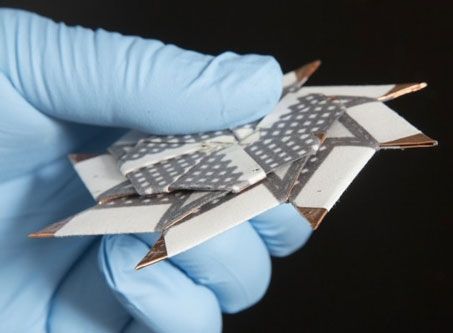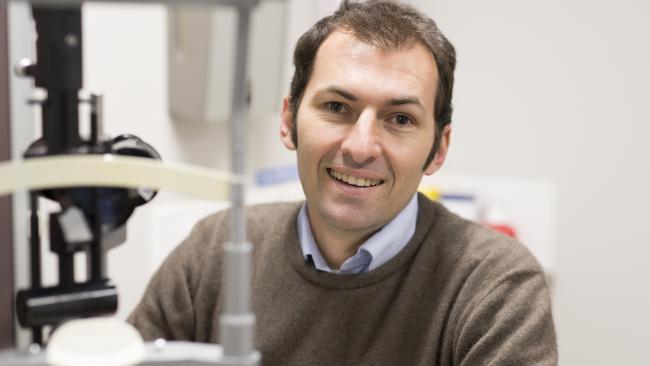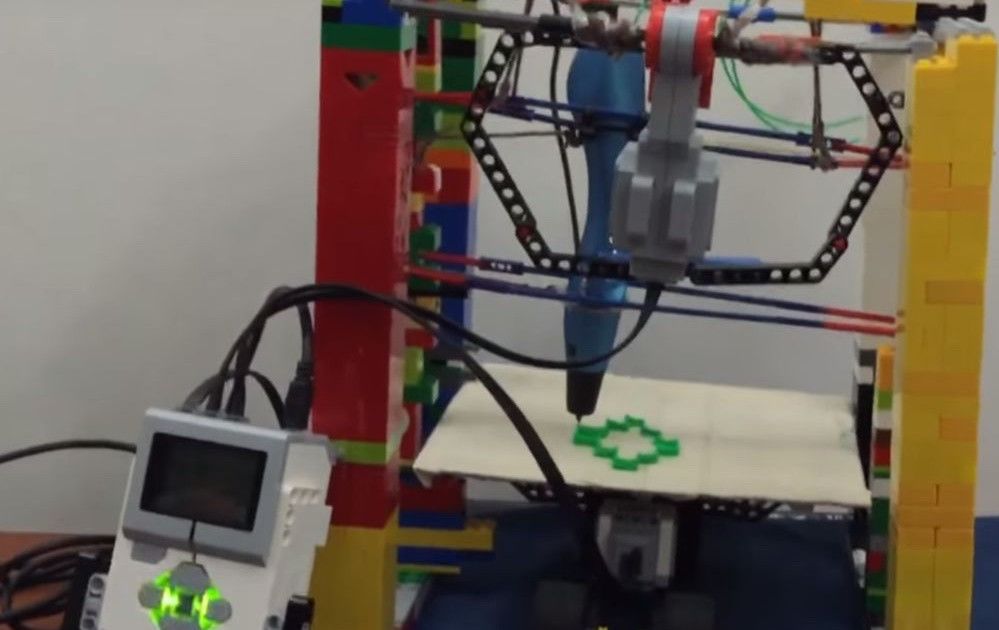Archive for the ‘innovation’ category: Page 201
Jul 21, 2016
This tiny foldable battery is powered by dirty water
Posted by Karen Hurst in categories: energy, innovation
Dirty water has a use.
New technology doesn’t always look great, but researchers at Binghamton University are aiming to prove that function and style don’t have to be at odds with a new bacteria-powered battery that takes its design cues from origami.
Seokheun “Sean” Choi, an assistant professor of computer and electrical engineering at Binghamton, and two of his students recently published in the journal Biosensors and Bioelectronics a report on their invention of a microbial fuel cell that runs on nothing more than the bacteria found in just a few drops of dirty water.
Continue reading “This tiny foldable battery is powered by dirty water” »
Jul 16, 2016
Pancreatic cancer ‘breakthrough’ hailed
Posted by Dan Kummer in categories: biotech/medical, innovation
Researchers in the U.K. have made what is described as a “breakthrough reclassification” of pancreatic cancer, which offers new opportunities to treat the often-fatal disease.
A study co-led by professor Andrew Biankin and colleagues at the University of Glasgow’s Institute of Cancer Sciences has found four “key subtypes” of the cancer, with each possessing “their own distinct clinical characteristics and differential survival outcomes,” according to a statement released on Thursday.
The researchers’ paper was published in the journal Nature, and named the subtypes as:
Continue reading “Pancreatic cancer ‘breakthrough’ hailed” »
Jul 15, 2016
Inherited eye disease breakthrough within sight of Tassie-led research team
Posted by Karen Hurst in categories: biotech/medical, innovation
A POSSIBLE cure for inherited eye diseases which cause blindness is within sight thanks to a breakthrough recorded by a Tasmanian-led research team.
Associate Professor Alex Hewitt, an ophthalmologist and a researcher with the University of Tasmania’s Menzies Institute for Medical Research and the School of Medicine, said his team had successfully edited adult eye tissue genes in the laboratory to replace unwanted genes that caused blindness.
Dr Hewitt said he was optimistic Tasmanian doctors could soon start wielding molecular gene shears inside the eyes of humans.
Jul 11, 2016
Eight new research units, 1 new clinical research unit
Posted by Karen Hurst in categories: biotech/medical, innovation
The Deutsche Forschungsgemeinschaft (DFG, German Research Foundation) will set up seven new Research Units and one new Clinical Research Unit. This was decided by the Senate of the DFG in its summer session during the DFG Annual Meeting in Mainz. In addition to the already established Units, another Research Unit is now in a position to start work. This Unit is funded jointly by the DFG and the Austrian Science Fund (FWF). The DFG Senate had already supported this Unit in March 2016 and approval has now been obtained from the Austrian partner organisation.
The research collaborations will offer researchers the possibility of pursuing current and pressing issues in their research areas and establishing innovative work directions. Clinical Research Units are also characterised by the close connection between research and clinical work. The maximum funding duration of Research Units and Clinical Research Units is two periods of three years. In the initial funding period, the nine new groups will receive approximately €23 million in total. As a result, the DFG will be funding a total of 190 Research Units and 19 Clinical Research Units.
The new Research Units.
Continue reading “Eight new research units, 1 new clinical research unit” »
Jun 26, 2016
Google Billionaire: 7 Game-Changing Tech Innovations to Take Off in 5 to 10 Years
Posted by Klaus Baldauf in category: innovation
Image source: Google.
Continue Reading Below.
Google’s parent, Alphabet, Inc., held its annual shareholder meeting earlier this month. The gem of the event for investors was when Executive ChairmanEric Schmidtdiscussed the “most interesting” tech innovations that hebelieves are going to take off over the next five to ten years.
Jun 22, 2016
This brilliant 10-year-old kid built a fully functional 3D printer out of Legos and K’nex
Posted by Karen Hurst in categories: 3D printing, innovation
One of the latest innovations in the 3D printing world comes from a preteen who created a 3D printer using a 3D –rinting pen and a Lego Mindstorms EV3.
I find this article extremely laughable. Of course, humans do not know everything around science why we do research, incubate, and evolve future technologies as well as continue to do innovation and discovery.
What We Cannot Know. By Marcus du Sautoy. 4th Estate; 440 pages; £20. To be published in America by Viking Penguin in April 2017.
“EVERYONE by nature desires to know,” wrote Aristotle more than 2,000 years ago. But are there limits to what human beings can know? This is the question that Marcus du Sautoy, the British mathematician who succeeeded Richard Dawkins as the Simonyi professor for the public understanding of science at Oxford University, explores in “What We Cannot Know”, his fascinating book on the limits of scientific knowledge.
Jun 8, 2016
Origami Ninja star inspires new battery design
Posted by Bruno Henrique de Souza in categories: energy, innovation
Seokheun “Sean” Choi, assistant professor of computer and electrical engineering at Binghamton University, along with two of his students, developed the device, a microbial fuel cell that runs on the bacteria available in a few drops of dirty water. They report on their invention in a new paper published online in the journal Biosensors and Bioelectronics (“A disposable power source in resource-limited environments: A paper-based biobattery generating electricity from wastewater”).

A new disposable battery that folds like an origami ninja star could power biosensors and other small devices for use in challenging field conditions.
Jun 6, 2016
China’s New Generation Sets Its Sights on Israel
Posted by Karen Hurst in categories: economics, innovation
A new wave of Chinese outbound investment has arrived in Israel, led by a younger generation of Chinese investors and entrepreneurs. This generation is more technology savvy than its predecessors, more focused on innovation, and will have a deep and lasting impact on Israel’s startup ecosystem.
Earlier waves of Chinese international investment were focused on manufacturing, natural resources and infrastructure. They were dominated by state-backed enterprises targeting large-scale projects and companies, often in Africa and frontier economies. Now, with outbound investment led by entrepreneurial investors who are digital natives, the emphasis is changing, and that is where Israel stands to benefit.
This generation is characterized by technology pioneers such as Alibaba, Baidu, Huawei, Kuang-Chi and Xiaomi, among the world’s most successful tech companies, on par with Western counterparts such as Amazon, Cisco and Samsung. What they see in Israel is an unmatched opportunity to learn and benefit from the unique Israeli technology ecosystem that is fast, dynamic, and lean.
Continue reading “China’s New Generation Sets Its Sights on Israel” »

















